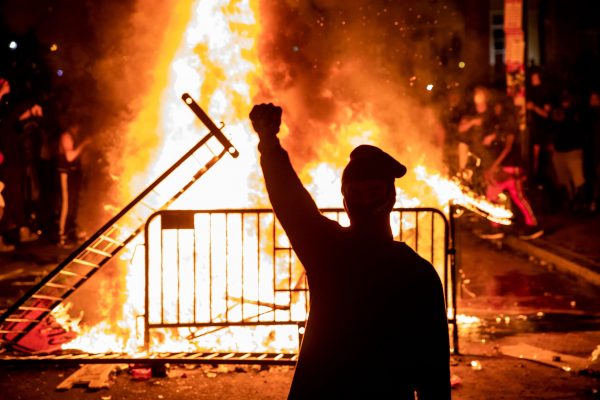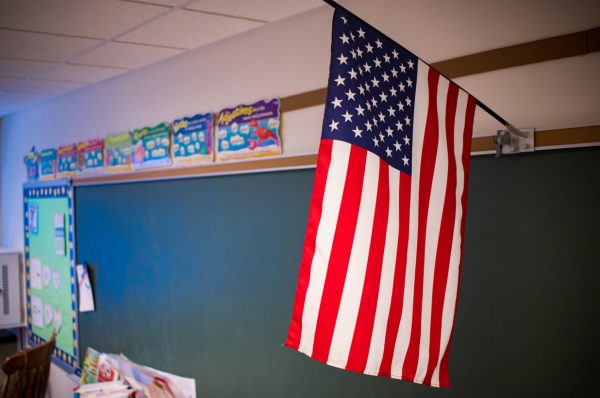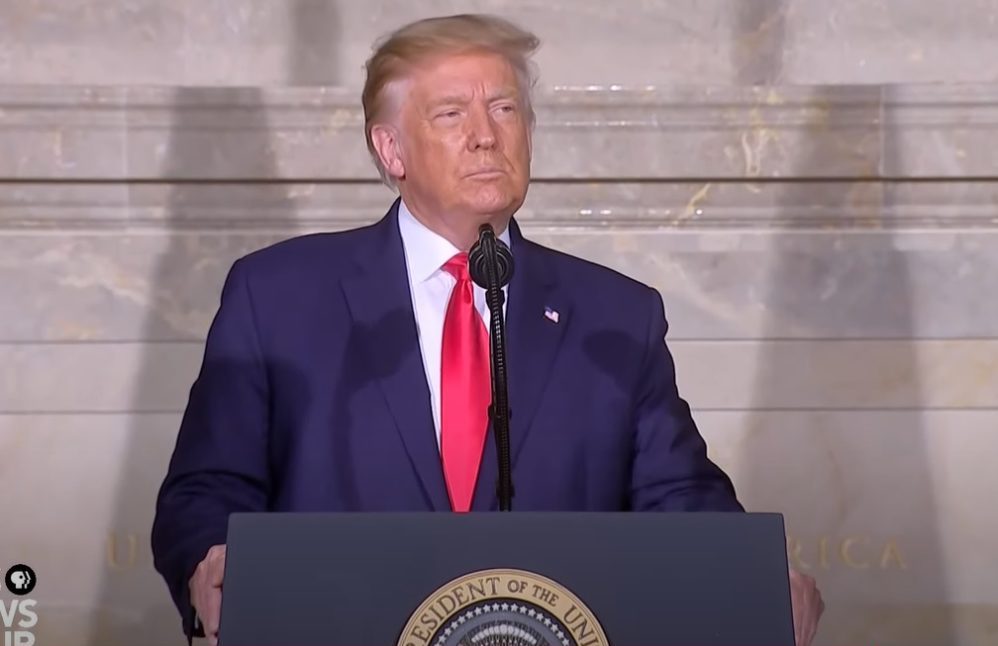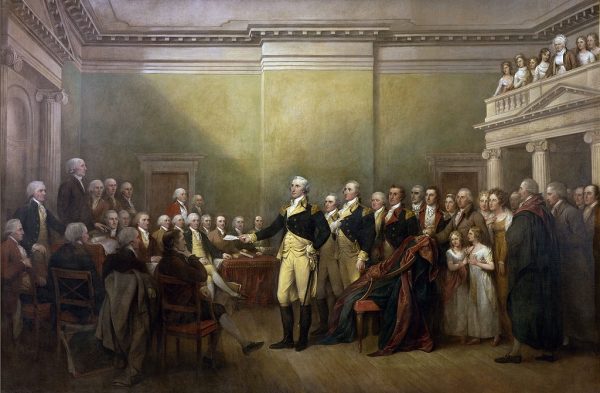Self-criticism, Progressivism, and post-modernism.
Reclaiming American History
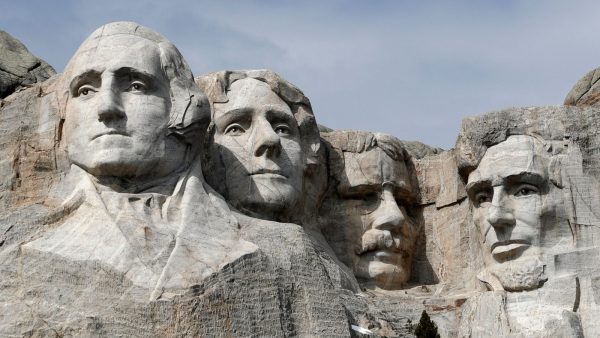
President Trump and his allies are launching a counterstrike in the war on our nation’s founding.
Since The American Mind began nearly two years ago, we have consistently warned of the regime-level crisis caused by the corruption of the content of American education. The recent riots and the ongoing cultural revolution fomented by identity politics has helped prove our point. It is now clearer to Americans that if we do not change course, decades of anti-American propaganda and identitarian teaching in our schools will result in a fundamental overthrow of our system of government.
Just two weeks ago the Trump administration hosted—to our great shock—the very first White House Conference on American History. Our surprise, to be clear, lay not in the fact that such a thing would take place during this particular presidency, but that it had hitherto in the storied chapters of our national tale remained undreamt of.
Or maybe it had been thought of but quickly set aside. After all, to give an account of one’s history, to evaluate it honestly and publicly, makes very clear the values and vision an administration has for the country. It’s different, for instance, than intoning platitudes. Remarking—always with a face of concern—that what the country needs now is hope and change is intellectually vacuous. So, in a different way, is facile talk of “a shining city on a hill” if it comes without specifics. It’s praiseworthy, but not programmatic.
So we could sense something exciting and novel was taking place when President Trump began, in the first full paragraph of his opening remarks, with the following words:
Our mission is to defend the legacy of America’s founding, the virtue of America’s heroes, and the nobility of the American character. We must clear away the twisted web of lies in our schools and classrooms, and teach our children the magnificent truth about our country. We want our sons and daughters to know that they are the citizens of the most exceptional nation in the history of the world.
Here, in plain-speak, was an intellectual agenda based on a proper and true understanding of American history. Here, in plain-speak, was the process by which the administration would achieve its aims. Fittingly, President Trump concluded his speech by announcing he would soon sign an Executive Order establishing a commission to promote patriotic education called the 1776 Commission.
Indeed, what followed were individual speeches by leading scholars involved in the “development of a pro-American curriculum that celebrates the truth about our nation’s great history.” We present many of these speeches below.
Several of them remind us how we got to the sorry state we’re in. Claremont Institute Senior Fellow Allen C. Guelzo argues that the intense self-consciousness of post-modernism and critical theory have undermined our faith in those objective self-evident truths in which the founders believed. “History-writing was mere narrative,” writes Guelzo, “since appeal to evidence itself was a mere narrative, cunningly devised to assist in the social construction of white supremacy.”
Alexander Hamilton Institute Fellow Mary Grabar shows how this anti-American narrative was popularized and exported by the work of revisionist historian Howard Zinn, generating a conviction among countless young people “that racism is built into the very fabric of our system of American institutions, and that positive change in our society cannot be realized through traditional liberal democratic measures, like lawmaking, voting, or even peaceable assembly.”
Theodor Rebarber, stressing the importance of high school and its metrics of success in this classroom-to-riot pipeline, outlines his solution: a new, patriotic curriculum evaluated by American Achievement Testing (AAT). Peter Wood emphasizes that elite colleges are also complicit, providing the intellectual training that justifies street-level violence and agitation. “Only a fairly small minority of college students are converted to this whole package of radicalization, but these truly radicalized students are the organized, managerial staff of the riots.”
Through it all, the speeches sound a note of hope. Historian Wilfred M. McClay, himself a skilled writer of American history for our times, notes that truly patriotic American history can “serve as an expression of shared memory, imparting to each generation a sense of membership in its own society, a sense of living connection to its own past.” The proof is in the pudding: as Jordan Adams has shown in his work at Hillsdale College, McClay’s own Land of Hope can and does revive the wonders of America’s triumphs—and the truth about her tragedies—for a new generation.
Another blessing from the gathering—one we hope endures—was the unequivocal statement of what American history is not. Namely, our history is not one centered solely or even primarily on racism. Consequently, we were not founded in 1619: the humane and philosophic principles of our Declaration and Constitution do not need replacing. America, as the Claremont Institute has put it, is not racist.
As Claremont Institute co-founder and Hillsdale President Larry Arnn masterfully puts it, “in this matter of history, freedom is at stake.” Developing an understanding of the uses and abuses of one’s own history is powerful and the mark of a free and good people. We reprint these remarks to encourage and guide a new national rebirth of just such an education. President Trump is to be commended for inviting that rebirth in the face of all that seeks to hinder it.
Please find our further comments on this topic collected in our previous feature on American Education and How to Save Higher Education.
The American Mind presents a range of perspectives. Views are writers’ own and do not necessarily represent those of The Claremont Institute.
The American Mind is a publication of the Claremont Institute, a non-profit 501(c)(3) organization, dedicated to restoring the principles of the American Founding to their rightful, preeminent authority in our national life. Interested in supporting our work? Gifts to the Claremont Institute are tax-deductible.
History sustains us when our ties to one another become frayed.
America's young people are miserable and angry. Universities are to blame.
The 1619 Project isn't the only curriculum turning students against America.
Our heroes will never be forgotten.
Revisionism disrespects students and undermines our regime.



